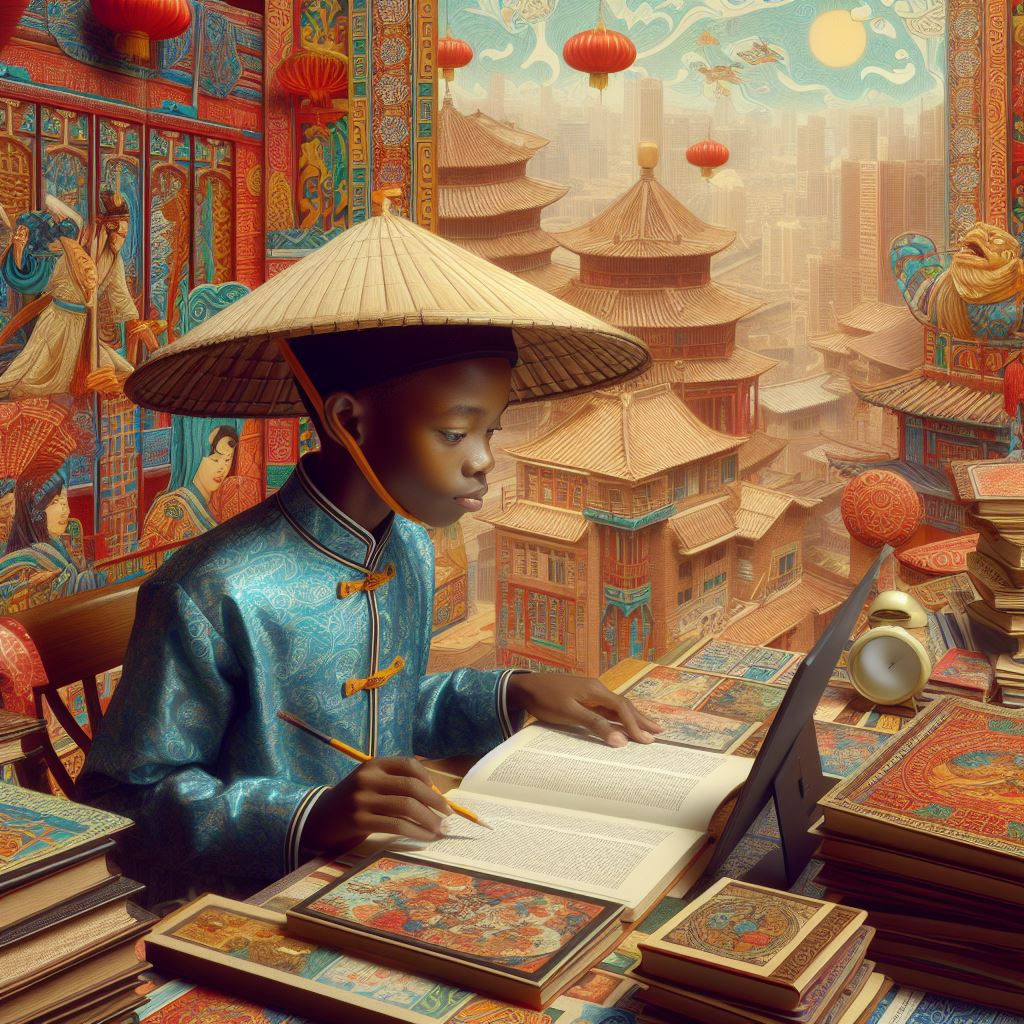Introduction
In understanding the historical ties between Nigeria and China, it is essential to delve into the past relations that have shaped their interactions.
Exploring the historical relationship between these two countries provides valuable insights into their diplomatic, economic, and cultural connections.
Brief Overview of Historical Ties Between Nigeria and China
Nigeria and China have a long history of diplomatic relations dating back to the 1960s when Nigeria became one of the first African countries to establish diplomatic ties with China.
This move marked the beginning of a significant partnership between the two nations.
Importance of Exploring the Historical Relationship Between the Two Countries
Studying the historical ties between Nigeria and China sheds light on the evolution of their bilateral relations and the factors that have influenced their interactions over the years.
It provides a context for understanding the current state of affairs between the two countries and offers insights into potential areas of cooperation in the future.
Early interactions between Nigeria and China
- Trade relations in ancient times
- Influence of Chinese goods and culture in Nigeria
Trade relations in ancient times
Historical records suggest that interactions between Nigeria and China date back to ancient times.
Trade relations played a critical role in connecting these two regions.
Chinese merchants were known to trade goods such as silk, porcelain, and spices with Nigerian traders.
These exchanges helped foster cultural ties between the two nations.
Chinese goods, especially silk and ceramics, became highly sought after in Nigeria.
The influence of these products was visible in Nigerian art, fashion, and architecture.
Chinese culture also made its way into Nigeria through various means.
Traditional practices, beliefs, and even language were influenced by Chinese customs and traditions.
Influence of Chinese goods and culture in Nigeria
Artifacts from ancient China have been discovered in archaeological sites in Nigeria, indicating the depth of historical ties between the two regions.
Over time, the exchange of ideas and goods between Nigeria and China continued to flourish, shaping the cultural landscape of both nations.
Chinese immigrants also played a role in shaping Nigeria’s cultural diversity.
Their presence introduced new cuisines, customs, and traditions to the country.
As trade routes expanded and technology advanced, the ties between Nigeria and China grew stronger.
The exchange of knowledge and expertise benefited both nations.
Generally, the historical ties between Nigeria and China have deep roots that have withstood the test of time.
These interactions have left a lasting impact on both countries’ cultures and societies.
Read: Developing Critical Thinking in Language Arts
Colonial era and its impact on Nigeria-China relations
During the colonial period, Nigeria was under British rule while China was facing its own internal struggles.
However, the two countries’ interactions were not entirely absent, as some Chinese workers were brought to Nigeria for specific projects.
Chinese workers in Nigeria during the colonial period
Chinese workers were primarily involved in the construction of railroads and other infrastructure projects in Nigeria.
These workers brought their expertise and skills, which helped in the development of essential infrastructure in the country.
Despite the presence of Chinese workers, the interactions between Nigeria and China remained limited during this period.
Effects of colonization on the relationship between Nigeria and China
The impact of colonization on Nigeria-China relations was complex, as both countries were dealing with their own struggles.
Colonization created a divide between Nigeria and China, limiting their interactions to specific projects and trade agreements.
Overall, the colonial era had a mixed impact on the relationship between Nigeria and China, laying the foundation for future engagements.
Read: Communication Arts: Balancing Theory and Practice
Post-independence era and diplomatic relations
During the post-independence era, Nigeria and China established diplomatic ties to foster cooperation and development.
The diplomatic relations between Nigeria and China were formalized on February 10, 1971.
This marked the beginning of a new chapter in the bilateral relations between the two nations.
Establishment of diplomatic ties between Nigeria and China
The establishment of diplomatic ties between Nigeria and China was a significant milestone in their history.
It opened up avenues for greater collaboration in various sectors such as trade, education, and cultural exchange.
The diplomatic relations were built on mutual respect and a shared vision for economic development.
Economic cooperation and development projects
One of the key aspects of the relationship between Nigeria and China is economic cooperation.
China has been a major investor in Nigeria, particularly in infrastructure projects such as roads, railways, and ports.
Chinese companies have also been involved in the construction of telecommunications networks and power plants in Nigeria.
Moreover, China has provided financial assistance to Nigeria through loans and grants to support various development projects.
The economic cooperation between the two countries has led to an increase in trade and investment, benefiting both nations.
China has become one of Nigeria’s top trading partners, with a significant volume of imports and exports between the two countries.
Overall, the historical ties between Nigeria and China have been characterized by diplomatic relations and economic cooperation.
The two nations have worked together to enhance their mutual interests and contribute to each other’s development.
With the continued partnership between Nigeria and China, there is great potential for further growth and collaboration in the future
Read: Famous Nigerian Alumni of Communication Arts Programs

See Related Content: The Future of Nigerian Fashion Design Industry
Cultural exchanges and educational collaborations
Nigeria and China have a long history of cultural exchanges and educational collaborations.
These interactions began to flourish in the late 20th century.
Cultural exchanges include art exhibitions, film festivals, and musical performances showcasing each nation’s unique heritage.
Such events foster mutual understanding and appreciation between the two countries.
Educational collaborations between Nigeria and China have grown significantly over the years.
Nigerian universities have established partnerships with Chinese institutions, promoting academic exchanges and joint research projects.
These collaborations span various disciplines, including science, technology, engineering, and humanities.
Nigerian students and scholars travel to China for research and training, enhancing their knowledge and skills.
Chinese Language and Cultural Influence in Nigeria
The influence of Chinese language and culture in Nigeria has increased notably.
Mandarin language courses are now offered in several Nigerian universities.
These courses attract students keen to learn about China’s language, culture, and business practices.
The Confucius Institute, a global Chinese cultural organization, plays a crucial role in promoting Chinese language and culture in Nigeria.
Multiple Confucius Institutes have been established in Nigerian universities, providing resources and support for language education.
Chinese cultural influence extends beyond language courses.
Chinese festivals, such as the Chinese New Year, are celebrated in Nigeria with growing enthusiasm.
These events introduce Nigerians to traditional Chinese customs, food, and art, further deepening cultural ties.
The popularity of Chinese martial arts, such as Tai Chi and Kung Fu, has also grown in Nigeria.
Many Nigerians practice these arts, appreciating their physical and mental benefits.
Scholarships and Exchange Programs Between the Two Countries
Scholarships and exchange programs between Nigeria and China have played a pivotal role in strengthening bilateral ties.
The Chinese government offers numerous scholarships to Nigerian students each year.
These scholarships enable students to pursue undergraduate, master’s, and doctoral degrees in various fields at Chinese universities.
The experience of studying in China provides Nigerian students with a global perspective and valuable international exposure.
Exchange programs facilitate the movement of students, teachers, and researchers between the two countries.
These programs promote cross-cultural learning and academic collaboration.
Nigerian students participating in exchange programs immerse themselves in Chinese culture and education systems.
Similarly, Chinese students and educators visiting Nigeria gain insights into the Nigerian way of life and educational practices.
These scholarships and exchange programs also enhance professional opportunities for participants.
Nigerian graduates from Chinese universities often find employment in international organizations, leveraging their bilingual skills and cross-cultural competencies.
They play essential roles in businesses, governmental agencies, and non-profit organizations, bridging gaps between the two countries.
Read: Impact of Communication Arts on Nigerian Media
You Might Also Like: Importance of Bilingualism in the Nigerian Job Market
Infrastructure projects and investments
Chinese involvement in infrastructure development in Nigeria has been significant over the years.
China has been instrumental in financing and constructing various infrastructure projects in Nigeria, ranging from roads and bridges to railways and ports.
One of the most notable infrastructure projects that China has been involved in is the construction of the Abuja-Kaduna railway.
This project, which was completed in 2016, has greatly improved transportation between the two cities and has had a positive impact on trade and commerce in the region.
In addition to the railway project, China has also been involved in the construction of several highways in Nigeria.
These projects have not only improved connectivity within the country but have also contributed to economic development by creating jobs and stimulating economic activity.
Impact of Chinese investments on Nigeria’s economy
- Chinese investments in Nigeria have had a significant impact on the country’s economy, especially in terms of infrastructure development.
- By financing and constructing various infrastructure projects, China has helped to improve the quality of life for many Nigerians, especially those in rural areas.
- Improved infrastructure has also helped to attract foreign investments to Nigeria, as it has created a more conducive environment for business growth and development.
- Additionally, Chinese investments in Nigeria have led to the transfer of technology and skills, which has helped to build local capacity and enhance the country’s human capital.
- Overall, the impact of Chinese investments on Nigeria’s economy has been positive, with infrastructure development playing a key role in driving economic growth and development in the country.
Gain More Insights: Nigerian Language Studies: Universities and Programs
You Might Also Like: Impact of Economics on Nigeria’s Development
Gain More Insights: Art Markets in Nigeria: Trends and Insights
Conclusion
Nigeria and China share a rich history of cultural and educational exchanges.
These historical ties began in the late 20th century, evolving through various stages of cooperation.
Cultural events, such as art exhibitions, film festivals, and traditional celebrations, have significantly strengthened their relationship.
Educational collaborations between Nigerian and Chinese universities have flourished, promoting mutual academic growth and understanding.
Nigerian students have benefited immensely from scholarships to study in China.
These opportunities have allowed them to gain valuable international experience and advanced education in diverse fields.
The presence of Confucius Institutes in Nigeria has further popularized Chinese language and culture, leading to an increased interest among Nigerians in learning Mandarin and understanding Chinese traditions.
Maintaining and strengthening this relationship is crucial for mutual benefit.
Both nations stand to gain from enhanced cultural understanding and economic cooperation.
Educational exchanges continue to play a vital role in enhancing skills and fostering global perspectives among students and professionals from both countries.




